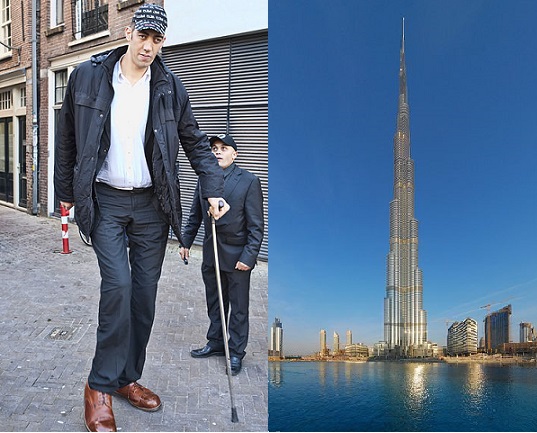In some ways, tall buildings are like tall people. They are more noticeable. In some cases they attract more attention. In others they demand it. But tall people don’t choose to be tall. Those who create tall buildings do.

Once workers bolt the last two pieces of a 408-foot spire into place atop One World Trade Center, the building will become the tallest in the Western Hemisphere – that’s what the Port Authority has been touting.
Why? In the case of 1WTC, it’s something of a patriotic morale booster after more than a decade of waiting for the World Trade Center site to reclaim the top spot as the city’s most grandiose.
In addition, firms pay more to locate in skyscrapers, and workers have been shown to be more productive in them; they often have their own restaurants, gyms and cafes, “all of which help people meet and exchange ideas,” some have noted.
From developers to managers of companies, the prestige of a landmark address is preferable – what one study called the “reputation effect,” stating that “skyscrapers are caused by agglomeration economies and a prize for being the tallest.”
But height has its downsides – especially extreme height. Take the world’s tallest man, Turkey’s Sultan Kösen, who at 8’3” has health and stability issues. Space becomes an issue when you’re tall. You sacrifice precious leg room in planes, trains and automobiles. You can’t drive a Smart car.
As buildings rise taller, they face a series of obstacles too. “At ground level, a breeze might barely register. A hundred floors up, it could be gusting at 40 mph,” an article in Popular Science, looking at the rise of the “Super Talls,” noted.
Architects and engineers must take the issues of stability very seriously. And they have to figure out how to effectively move people through them, utilizing different design techniques from their shorter counterparts, employing sky lobbies and double-decker elevators to create fluid movement, that article noted.
What about that “reputation effect.” Does that work for tall people?
The seven-foot-tall Australian stunt actor Conan Stevens argued that “since you are more noticeable, any achievements that you make will stand out more, so [you] achieve more,” noting that tall men make up a disproportionately large percentage of company CEO’s and that on average a tall man makes more money.
Others argue that tall people are perceived as being more attractive. They can also reach things on the top aisle at the grocery store.
“Believe me, if you are tall, you better start looking at it as your greatest blessing,” Mr. Stevens wrote.


